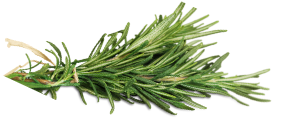
Traditional Chinese Veterinary Medicine
What is Traditional Chinese Veterinary Medicine?

Traditional Chinese Veterinary Medicine (TCVM) has been used in China to treat humans and animals for thousands of years.
The theory behind TCVM is completely different from conventional western medicine.
In Chinese Medicine theory, a disease is understood as an imbalance in the body, and diagnosis proceeds through identifying the underlying pattern of disharmony through tongue colour, pulse and temperature preference etc.

How Should TCVM be Used?
For most conditions, Chinese herbal medicine can be used in conjunction with acupuncture to have synergistic results.
TCVM can be used as a complementary alternative therapy, but the best results occur when it is used in conjunction with Western Veterinary Medicine. Western drugs are powerful and fast-acting to address the symptoms. While TCVM addresses the well-being of the whole patient and treating the root of the disease.
TCVM is suited for chronic conditions. For the refractory cases from western medicine, we can consider whether TCVM can be used in combination for the treatment of the patient.

How is It Administered?
The herbal medicine comes in powder form. Some common herbs can be specially ordered in biscuit form.
We use trusted ingredients from Taiwan and the USA, specially made for animal use with good quality control. The herbal powder can be mixed with tasty food, mixed with water or put into a capsule to administer directly.
Are There Any Side Effects or Drug Reactions?
The most common side effect is gastrointestinal signs e.g. reduced appetite, vomiting and diarrhoea. Some herbs may have interactions with conventional drugs. This is not common and can be avoided with knowledge of the herbs.

Which conditions should we consider herbal medicine for?
TCVM may be recommended for the following conditions:
- Arthritis, back pain, joint pain, limb weakness, paresis & paralysis
- To reduce reliance on pain medications for patients with chronic pain.
- For patients with recurrent constipation
- Chronic coughing
- Kidney and bladder stones
Related Blogs




